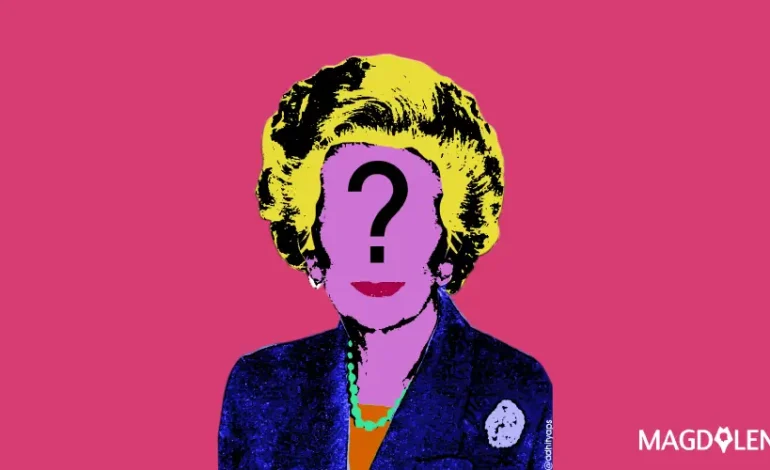Can There Be a Future for Indonesian Women in Politics?

Most people would say that they support equal opportunities for male and female to access education and maximize their potential. Most people would also say that they disagree with sexual harassment. But are everyone on the same page when it really comes to gender equality?
Consider a famous study in Harvard Business School. A professor showed to his class the profile of an entrepreneur named Howard Roizen, who supposedly thrived as a Silicon Valley venture capitalist and are friends with Bill Gates and Steve Jobs. Many students said they were keen to work for Howard as he was a “catalyst” or “captain of industry”.
The truth is Howard does not exist, that profile actually belongs to Heidi Roizen. When the name was corrected, fewer students showed interest in working for her. The same characteristics that were great for Howard now made Heidi sound “selfish,” “full of herself” or “harsh.”
Moral of the story: even the most competent women must be seen as likeable more than respectable.
Another case in point. I scrolled down my Facebook timeline some time ago and was startled to see comments made by some of my friends on a tweet from a young female politician. That politician was reminding newly elected Vice Governor Sandiaga Uno to keep Balai Kota open for citizens to report their grievance. It was a good reminder that has been responded with the provincial government expressing their commitment to keep Balai Kota open for public and to improve the district and subdistrict offices’ capacity in receiving public grievance.
But what bothered me the most was how the public responded to the tweet.
“Beautiful girl like this should just be my mistress,” one said.
“If you still don’t understand Mr. Uno’s statement, I am happy to talk this over with you until you are fully satisfied,” said another. Not only that their comments were sexist and degrading, they amounted to sexual harassment.
It is actually not hard to see whether a statement is sexist or not. The easiest way is to apply it the same comment in reverse to a male politician you disagree with. Would such politician ever receive comments like “handsome man like this should just be my lover?” If you answered “No” to this and other similar questions, then you would understand what is wrong with our society. If saying those words to male politicians is unacceptable, why say it to female ones?

Gender equality by design
We are just two years away from the next election cycle and we’ve started to see many new faces in our political discourses every day, both male and female from old and new political parties. It is going to be a very exciting election since more millennials are going to run. The way politicians deliver messages will be different and more direct in the coming years as they will use more social media to reach voters in their campaign. It will be easier for us to communicate with them as well.
I think we can agree that if we want to see our country advance in the future, we should be open to include different voices to the daily political discussion. That is why encouraging groups that are underrepresented in politics like women, minority groups, people from different ethnicities, and people with disabilities is necessary. We must take into account diverse ideas in the policy-making process to create inclusive policies for all.
Ironically, similar to obtaining top management positions in the corporate ladder, women around the world face the same societal barriers when they want to go into politics. Their first challenge is to overcome the perception that politics is a men’s arena and, therefore, not the right place for women however competent they are. Some women may also be reluctant to step in due to their busy and demanding schedule having to balance career and family. Women are often criticized for choosing career or study over child-bearing. Most importantly, women are held to higher standards than are men when they aim for leadership positions.
Since 2004 there has been a minimum quota imposed for political parties in Indonesia to nominate at least 30 percent female candidates in the legislative election. But up until 2014, the actual women representation in Parliament only reached 17%. This means that while women run for office, they are just not elected. Indonesia is among the first countries to have a female president with President Megawati Sukarnoputri, but, never forget, that though her party won the election legitimately at the time – before Indonesia held direct presidential election – she was only appointed vice president by Parliament, and later stepped up to presidency after the impeachment of then President Abdurrahman Wahid.
If we are really serious about becoming one of the top economies in the future, reflecting diversity by empowering Indonesian women in politics is a must. But we cannot let women do it themselves, we need to promote gender equality in our political design. Legislative quota is good, but it would not work on its own. We need to make sure that competent women are running and elected.
As a voter, we also need to start debiasing ourselves from stereotypes. Try to do thinking exercises by asking ourselves questions like “would we react like this if this tweet came from a male politician?” This way, we will start holding male and female against the same standards.
Lastly, to encourage female politicians to stay vocal in politics, we need to speak up when they are being degraded or harassed, and this needs to be implemented from the lowest to the top form of governance, from Indonesia’s villages to the presidency.
Talitha Chairunissa is a Masters of Public Policy candidate at the John F. Kennedy School of Government, Harvard University and an awardee of the Indonesian Education Scholarship (LPDP) from the Indonesian Finance Ministry.






















